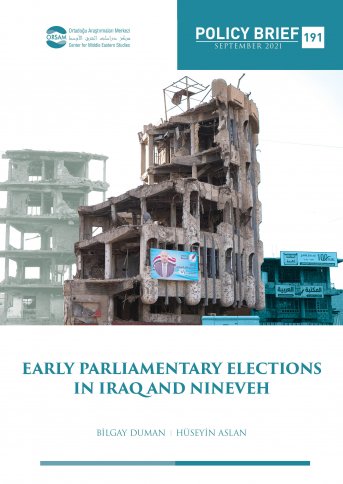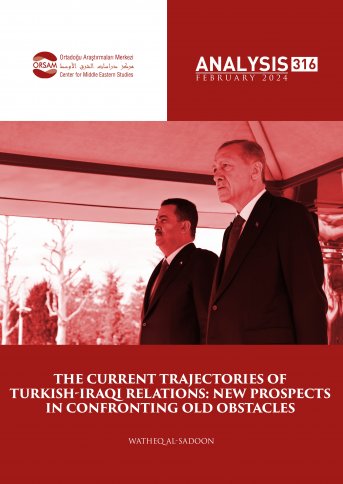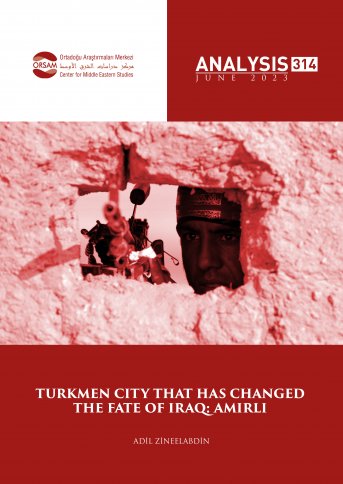
Early Parliamentary Elections in Iraq and Nineveh
Iraq’s early elections, which will be held on 10 October 2021, are seen as a significant step in the country’s modern history. For the first time since the 2003 invasion, an Iraqi government is responding to public demand positively in its decision to conduct early elections. In this regard, the Iraqi parliament has amended the electoral law. According to Article 15, Paragraph 1 of the amended law, a province is divided into several constituencies and according to Paragraph 2, only one woman candidate is nominated from each constituency. Elsewhere, according to Article 13, Paragraph 1, the parliament consists of a total of 329 seats, where 320 seats are allocated to provinces based on administrative boundaries and 9 seats are allocated to minorities. The seats allocated to minorities are distributed as follows:
- One seat for each Christian community living in Baghdad, Nineveh, Kirkuk, Dohuk and Erbil amounting to 5 seats in total,
- One seat for Yezidis in Nineveh,
- One seat for Sabians in Baghdad,
- One for Shabaks in Nineveh, and
- One seat for Feylis in Wasit.
According to the law, the quotas for Christians and Sabians are allocated in one constituency. It should be noted that three of the nine quotas in the Iraqi parliament are elected by minorities in Nineveh.
Along with Basra, Nineveh is considered as one of the most important provinces in Iraq after Baghdad, considering its high population and 34 seats (including 3 quota seats) in the parliament. The province is divided into eight constituencies, and all political groups strive to partake in this distribution and win at least one seat. Unlike other provinces, this province stands out for its ethnic and religious diversity. This diversity has become the trump card of the conflict between the different components of Iraq since the fall of Baghdad in 2003. Some political factions unsatisfied with the province’s diversity have tried to take advantage of the conflict to alter the demographics of the region and impose a policy of “drive out and kill”. Consequently, ethnic and sectarian tensions emerged in Nineveh between communities that used to live in peace for centuries. Following its liberation from the ISIS terrorist organisation, Nineveh has recently witnessed radical political, economic and social changes, which, so to say, has increased and intensified competition in the province.







